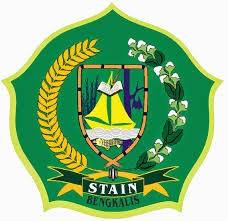Penerapan Pendekatan Pembelajaran yang Responsif terhadap Budaya dengan Bantuan Media Data Dice untuk Meningkatkan Hasil Belajar Matematika Siswa Kelas V pada Tahun 2025
DOI:
https://doi.org/10.56633/kaisa.v5i1.1059Keywords:
learning outcomes, culturally responsive teaching (crt), mathematicsAbstract
Classroom Action Research (CAR) aimed at improving the learning outcomes of Grade V students by implementing the Culturally Responsive Teaching (CRT) approach in the Mathematics subject at SD 3 Jati Wetan. The research was conducted in two cycles. The subjects of the study were eight Grade V students, consisting of four boys and four girls. The object of the study was the improvement of students' understanding of data concepts through the Culturally Responsive Teaching (CRT) approach. Data collection techniques included interviews, observation, tests, and documentation. Data analysis was conducted using quantitative data analysis. The cognitive learning outcomes of the students in mathematics showed a significant improvement from the observed (12 %), Cycle I (50%), to Cycle II (88%). Based on the results of the classroom action research, it can be concluded that the implementation of the Culturally Responsive Teaching (CRT) approach assisted by Data Dice media effectively improved students' learning outcomes in Mathematics
References
Fani Mayang Sari, Yuli, Aries Tika Damayani, Akhmad Arif, Pendidikan Profesi Guru, Universitas PGRI Semarang, and SD Negeri Pedurungan Kidul. “Penerapan Pendekatan CRT Untuk Meningkatkan Hasil Belajar Siswa Kelas IV Pada Mata Pelajaran Matematika.” Jurnal Pendidikan Tambusai 8, no. 3 (2024): 33143–33150.
Harahap, Khadijah Gani, Hikmah Pradana, William Iskandar, Kec Percut, Sei Tuan, Kab Deli Serdang, and Sumatera Utara. “Pengaruh Penggunaan Media Pembelajaran Terhadap Hasil Belajar Siswa.” Journal on Education 06, no. 03 (2024): 17218–17223.
Jayanti, Indriani, Nurdin Arifin, and Dedi Rahman Nur. “Analisis Faktor Internal Dan Eksternal Kesulitan Belajar Matematika Di Sekolah Dasar.” Sistema: Jurnal Pendidikan 1, no. 1 (2020): 2. https://jurnal.fkip-uwgm.ac.id/index.php/sjp.
Khaulani, Fatma, Neviyarni S, and Irdamurni Irdamurni. “Fase Dan Tugas Perkembangan Anak Sekolah Dasar.” Jurnal Ilmiah Pendidikan Dasar 7, no. 1 (2020): 51.
Maulana, Muhammad Andrian, and Nani Mediatati. “Penerapan Model Project Based Learning LITERASI Penerapan Model Project Based Learning Melalui Pendekatan Culturally Responsive Teaching Untuk Meningkatkan Kolaborasi dan Hasil Belajar Siswa.” LITERASI XV (2023): 153. www.ejournal.almaata.ac.id/literasi.
Misykah, Zulvia . Panggabean, Dewi Sartika. “Pengaruh Media Konkret Terhadap Hasil Belajar Siswa Pada Pelajaran Matematika Kelas Ii Sd Nurul Fathimiyah Bandar Klippa Tahun Ajaran 2021/2022.” Jurnal Guru Kita 6, no. 4 (2022): 2549–1288.
Mukhamad Fathoni, M.Pd.I. Teknik Pengumpulan Data Penelitian. Jurnal Keperawatan. Purbalingga: Eureka Media Aksara, 2023.
Nurbaitil Maqdis, Nabila, and Andi Dewi Riang Tati. Penerapan Pendekatan Culturally Responsive Teaching (CRT) Untuk Meningkatkan Minat Belajar Peserta Didik Pada Mata Pelajaran Bahasa Indonesia Kelas IV. Jurnal Lempu. Vol. 1. Makassar, 2024. https://journal.unm.ac.id/index.php/lempu.
Roinah, Sofiani, I. K., Susanti, T., Sumarni, T., Mahsuri. Blended Learning to Enhance Productive Skills. International Journal of Innovative Research in Multidisciplinary Education 3, No.10 (2024): 1602-1606
Utomo, Prio, Nova Asvio, and Fiki Prayogi. “Metode Penelitian Tindakan Kelas (PTK): Panduan Praktis Untuk Guru Dan Mahasiswa Di Institusi Pendidikan.” Pubmedia Jurnal Penelitian Tindakan Kelas Indonesia 1, no. 4 (July 30, 2024): 19.
Yudiati, Rini, Anni Annisa, and Arda Gusema Susilowati. “Pentingnya Memperkenalkan Budaya Lokal Sejak Dini Di Era Digital.” Rampa’ Naong Jurnal Pengabdian Kepada Masyarakat 2, no. 1 (2024): 23–27.
Downloads
Published
Issue
Section
License
Copyright (c) 2025 Fatikhatus Sangadah

This work is licensed under a Creative Commons Attribution-NonCommercial-ShareAlike 4.0 International License.

Authors who publish with Kaisa: Jurnal Pendidikan dan Pembelajaran agree to the following terms:
- Authors retain copyright and grant the journal right of first publication with the work simultaneously licensed under a Creative Commons Attribution-NonCommercial-ShareAlike 4.0 International License (CC BY-NC-SA 4.0) that allows others to share the work with an acknowledgment of the work's authorship and initial publication in this journal.
- Authors are able to enter into separate, additional contractual arrangements for the non-exclusive distribution of the journal's published version of the work (e.g., post it to an institutional repository or publish it in a book), with an acknowledgment of its initial publication in this journal.
- Authors are permitted and encouraged to post their work online (e.g., in institutional repositories or on their website) prior to and during the submission process, as it can lead to productive exchanges, as well as earlier and greater citation of published work (See The Effect of Open Access).









